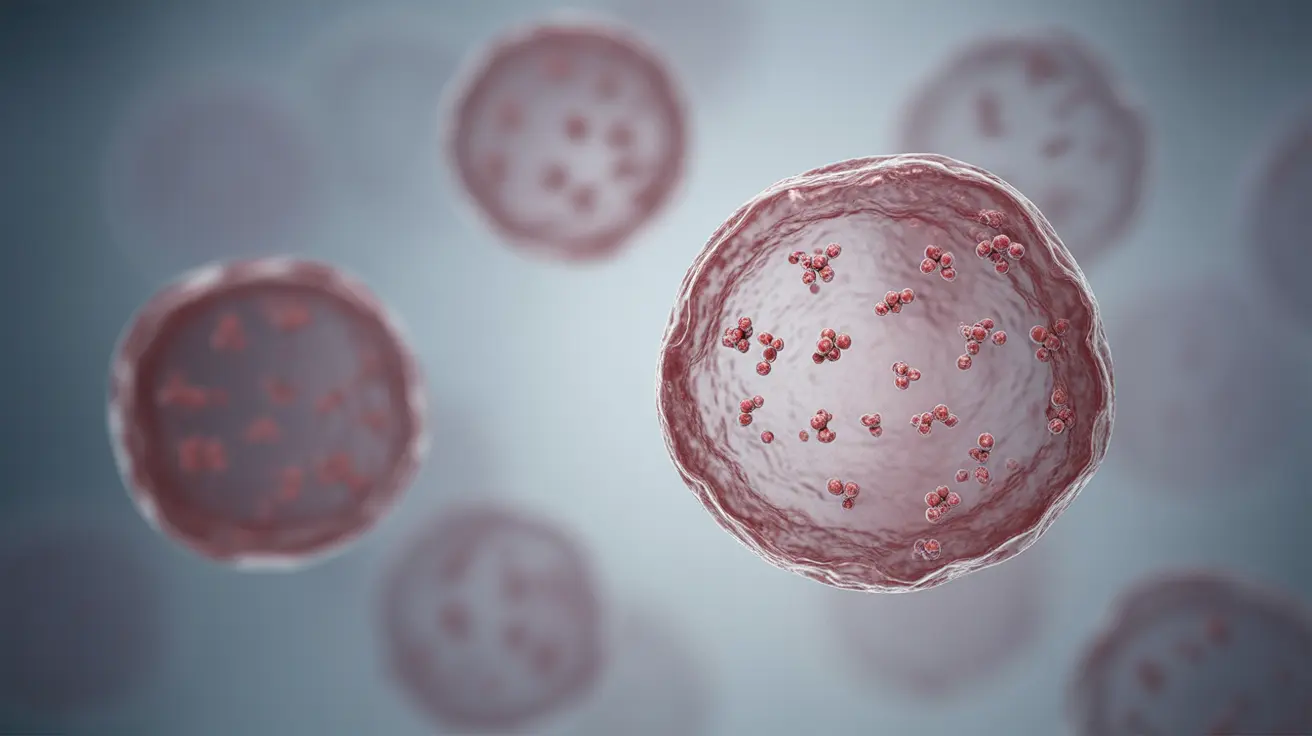HER2-negative breast cancer is a specific type of breast cancer characterized by the absence of excess HER2 proteins on cancer cell surfaces. Understanding this distinction is crucial for proper diagnosis and treatment planning, as it directly influences the therapeutic approaches available to patients.
Approximately 80% of breast cancers are classified as HER2-negative, making it the more common form of the disease. This classification helps oncologists determine the most effective treatment strategies for each individual patient.
What Defines HER2-Negative Breast Cancer?
HER2-negative breast cancer occurs when breast cancer cells don't have excessive amounts of human epidermal growth factor receptor 2 (HER2) proteins on their surface. These cancer cells don't rely on HER2 proteins to grow and spread, which makes them respond differently to various treatment options compared to HER2-positive cancers.
Key characteristics of HER2-negative breast cancer include:
- Normal levels of HER2 protein expression
- Different growth patterns compared to HER2-positive cancers
- Potential sensitivity to hormone therapy if also hormone receptor-positive
- Generally slower growth rate than HER2-positive cancers
Diagnostic Process and Testing
Accurate diagnosis of HER2 status requires specific testing methods performed on breast tissue samples. The two primary testing approaches are:
Immunohistochemistry (IHC) Testing
This test measures the amount of HER2 protein on the surface of cancer cells. Results are scored from 0 to 3+, with scores of 0 or 1+ indicating HER2-negative status.
Fluorescence In Situ Hybridization (FISH)
FISH testing examines the number of copies of the HER2 gene present in cancer cells. A negative result confirms HER2-negative status.
Treatment Approaches
Treatment options for HER2-negative breast cancer typically include:
Surgery
Surgical options may include lumpectomy or mastectomy, depending on various factors such as tumor size and location.
Chemotherapy
Many HER2-negative patients receive chemotherapy, either before surgery (neoadjuvant) or after (adjuvant), to eliminate cancer cells throughout the body.
Hormone Therapy
If the cancer is also hormone receptor-positive, hormone therapy may be prescribed to block the effects of estrogen and progesterone on cancer growth.
Radiation Therapy
Local radiation therapy helps destroy any remaining cancer cells after surgery and reduces the risk of recurrence.
Prognosis and Outlook
The prognosis for HER2-negative breast cancer varies depending on several factors, including:
- Stage at diagnosis
- Hormone receptor status
- Grade of the tumor
- Patient's overall health
- Response to treatment
Generally, HER2-negative cancers may have a more favorable prognosis than HER2-positive cases, particularly when detected early and treated appropriately.
Frequently Asked Questions
What does it mean to have HER2-negative breast cancer and how is it different from HER2-positive cancer? HER2-negative breast cancer means the cancer cells don't have excess HER2 proteins on their surface. Unlike HER2-positive cancers, these cancers don't rely on HER2 for growth and typically grow more slowly.
How is HER2-negative breast cancer diagnosed and what tests determine HER2 status? HER2 status is determined through IHC testing and/or FISH testing of breast tissue samples. These tests measure HER2 protein levels and gene copies to confirm negative status.
What are the common treatment options available for HER2-negative breast cancer? Treatment typically includes surgery, chemotherapy, radiation therapy, and possibly hormone therapy if the cancer is hormone receptor-positive.
Can HER2-negative breast cancer patients benefit from hormone therapy or immunotherapy? HER2-negative patients can benefit from hormone therapy if their cancer is hormone receptor-positive. Immunotherapy may be appropriate in specific cases, particularly for triple-negative breast cancer.
What is the prognosis for HER2-negative breast cancer compared to HER2-positive breast cancer? HER2-negative breast cancers often have a more favorable prognosis than HER2-positive cases, especially when detected early. However, individual outcomes depend on multiple factors including stage, grade, and treatment response.




